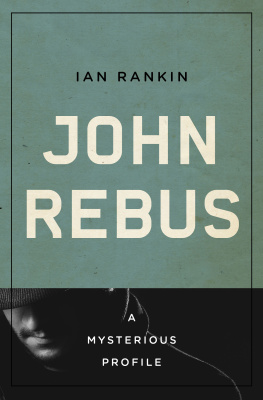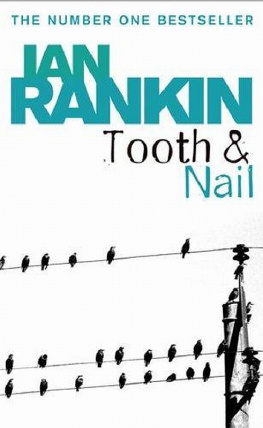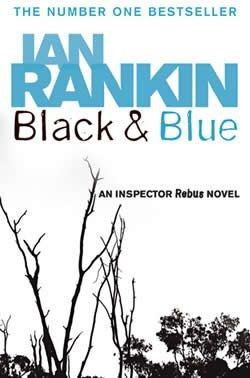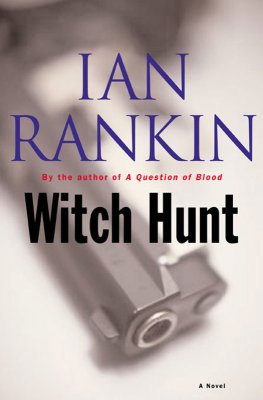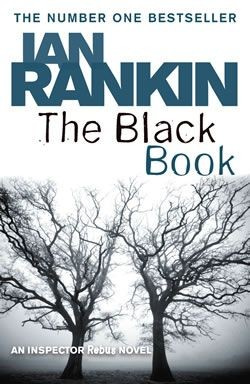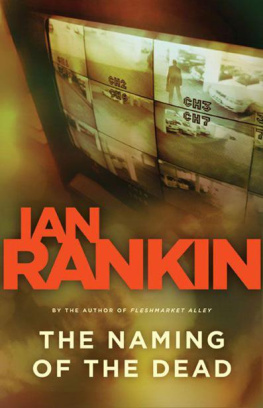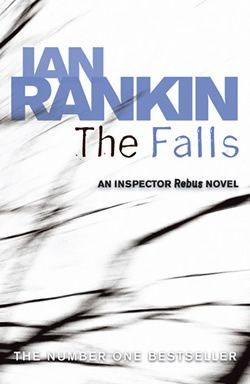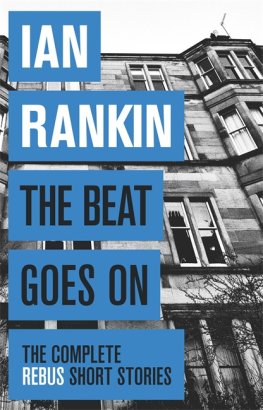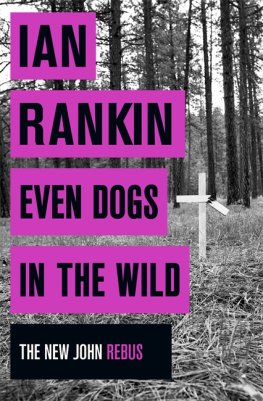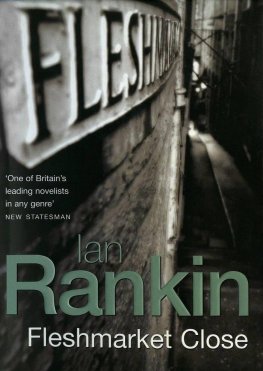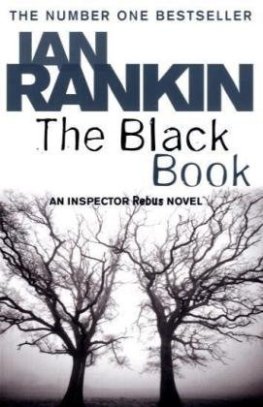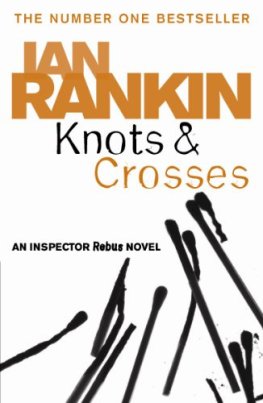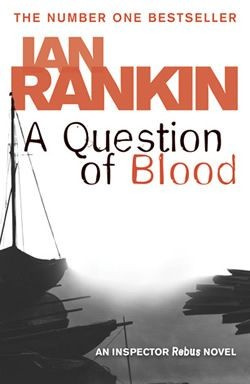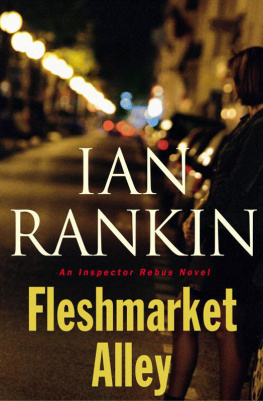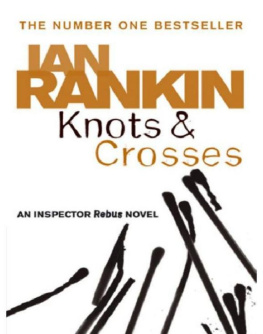John Rebus
A Mysterious Profile
Ian Rankin

I
Male hero (a policeman?)
That was my first note to myself, dated March 15th 1985, about the character who would eventually become Detective Inspector John Rebus. I was twenty-four years old and a postgraduate student at the University of Edinburgh. I was living in a shared apartment with two other (female) postgrads in Arden Street. Id been in the city six-and-a-half years, and still I couldnt fathom the place. My doctoral thesis was concentrating on the novelist Muriel Spark, and through her I was beginning to investigate the Edinburgh of the imagination. In Sparks most celebrated work, The Prime of Miss Jean Brodie, Miss Brodie is a descendant of William Brodie, a real historical character. Brodie was a deacon of the city, a councillor, cabinet-maker and a man who lived a double life. Respectable and industrious by day, by night he led a masked gang into the homes of his victims, robbing them of their valuables. Brodie was trying to fund his lavish lifestyle (including a couple of demanding mistresses), and had diversified into lock-fitting, meaning he had little trouble gaining unlawful entry. When caught and found guilty, he was hanged on a scaffold he had helped to modernize as part of his daily profession.
Deacon Brodie provided the template for another great character from Scottish literature, Robert Louis Stevensons Dr. Henry Jekyll. Muriel Spark was a huge fan of Stevenson, and my researches took me to The Strange Case of Dr. Jekyll and Mr. Hyde. The idea of the doppelganger had been explored before, however, in James Hoggs Confessions of a Justified Sinner, so I had to read that book, too. At the same time, I was becoming fascinated by contemporary literary theory, enjoying the game-playing aspect of storytelling. Eventually, I would name my own fictional detective after a type of picture-puzzle, and the mystery in his first adventure would be solved with the help of a professor of semiotics.
Thats the problem with Knots and Crosses (and one reason I find it hard to read the book these days)it is so obviously written by a literature student. Rebus reads too many books, and even quotes from Walt Whitman (a writer whose works he really shouldnt have known). He is overly literate, perhaps because I didnt quite know him. I was twenty-four and knew little enough of life outside the confines of academia. I certainly didnt know what it would be like to work as a cop. The plot of Knots and Crosses demanded that Rebus be a seasoned pro, so I made him forty years old. Hes separated from his wife and has a young daughter. Really, this guy was unlike me in so many ways, and our one resemblancethat love of literaturemade him less than realistic.
It seems to me now that I wasnt interested in Rebus as a person. He was a way of telling a story about Edinburgh, and of updating the doppelganger tradition. Knots and Crosses was self-consciously based on Jekyll and Hyde, just as a later Rebus novel, The Black Book, would use Justified Sinner as its starting point. The thing is, Id always been a bit of an outsider/doppelganger, always tried to present several faces to the world. Id grown up in a fairly tough neighbourhooda town of 7,000 inhabitantswhich had existed only as a hamlet and a couple of farms until coal was discovered at the start of the twentieth century. Thats when my grandfather shifted the family east from the Lanarkshire coalfields. Homes were constructed quickly (and cheaply) to house the new labor force. There wasnt even time to think up names for the streets, so they just got numbers instead. My dad (the youngest of seven) didnt work down in the mines, but all his brothers did. By the time I came along, however, the coal was running out. The klaxon which signalled the start of each new shift fell silent one day, and that was that. Not that I took much of this in, being too busy living a completely separate life inside my own head.
There was another world in therea fantastical world filled with spaceships and soldiers and constant thrilling adventure. In winter, Id pretend that my bed was an Arctic encampmentwhich wasnt so far from the truth. There was heating only in the livingroom downstairs, and in the winter months Id wake up to a thin film of ice on the insides of my windows. But even that ice seemed strange and wonderful to my young imagination. Id be under the thick blankets with a flashlight and a good supply of comic booksBritish and American. Soon, I was even making my own versions, folding sheets of paper and slitting the edges to make little eight-page booklets which I would cover with doodles and drawingsmore spaceships, more soldiers. I think I remember showing one of my creations to my mum, who seemed bemused. Maybe shed spotted something I hadnt: an absolute lack of artistic ability.
Not that this mattered, because by the age of twelve I was moving from comic books to music. Id started buying chart singles and reading pop magazines. I was decorating the walls of my room with posters. A friends older brother opened my ears to Frank Zappa, Jethro Tull and Led Zeppelin. My mother agreed to buy me a Hendrix album for my birthday, although this meant a terrifying sortie to the hippie record shop in nearby Kirkcaldy. As with comic books, however, I wasnt interested in being a mere bystanderI wanted a band of my own, and created on paper what was impossible in real life. My alter-ego was vocalist Ian Kaput, and he was joined by guitarist Blue Lightning and bassist Zed Killer Macintosh (plus a drummer with a double-barrelled name, but I forget now what it was). The group was called the Amoebas. They started off playing three-minute pop hits, but eventually graduated to progressive rocktheir masterpiece lasted twenty-six minutes and was called Continuous Repercussionsand I was with them all the way, writing their lyrics, designing their record-sleeves, planning their world tours and TV appearances. Id make up a top ten (albums and singles) each week, which entailed the creation of another nine group, and so it went.
Im conscious now that what I was doing was playing God, re-imagining my world and making it more exciting and evocative than the reality. Its what all writers do, and already I was starting to feel like a writer. My parents werent great readers, and there were few books in the house, but I was drawn to stories. I would haunt the towns library, and soon started borrowing adult titles, meaning books whose films I wasnt old enough to see at the cinema. At age thirteen, I was reading Mario Puzos The Godfather and Anthony Burgesss A Clockwork Orange. By fourteen it was One Flew Over the Cuckoos Nest . I also came across Ernest Tidymans Shaft books (and would eventually give Rebus the forename John as a nod to black private dick John Shaft). I checked the TV schedules to see if there were any programs about books and would watch them, deciding that I really needed to read this guy Solzhenitsyn (I ended up struggling through volume two of The Gulag Archipelago). Later on I would fail to finish Dantes Inferno but be thrilled by Ian McEwans first book of short stories.
My best subject at high school was English. I always enjoyed writing essays (which were in effect short stories). One was called Paradox and concerned a man who seemed to be president of the United States but later turned out to be an inmate in an insane asylum. My teacher liked it but wondered why Id chosen that particular title. It was the name of a Hawkwind song, I told him, and I just liked the sound and look of the word.

